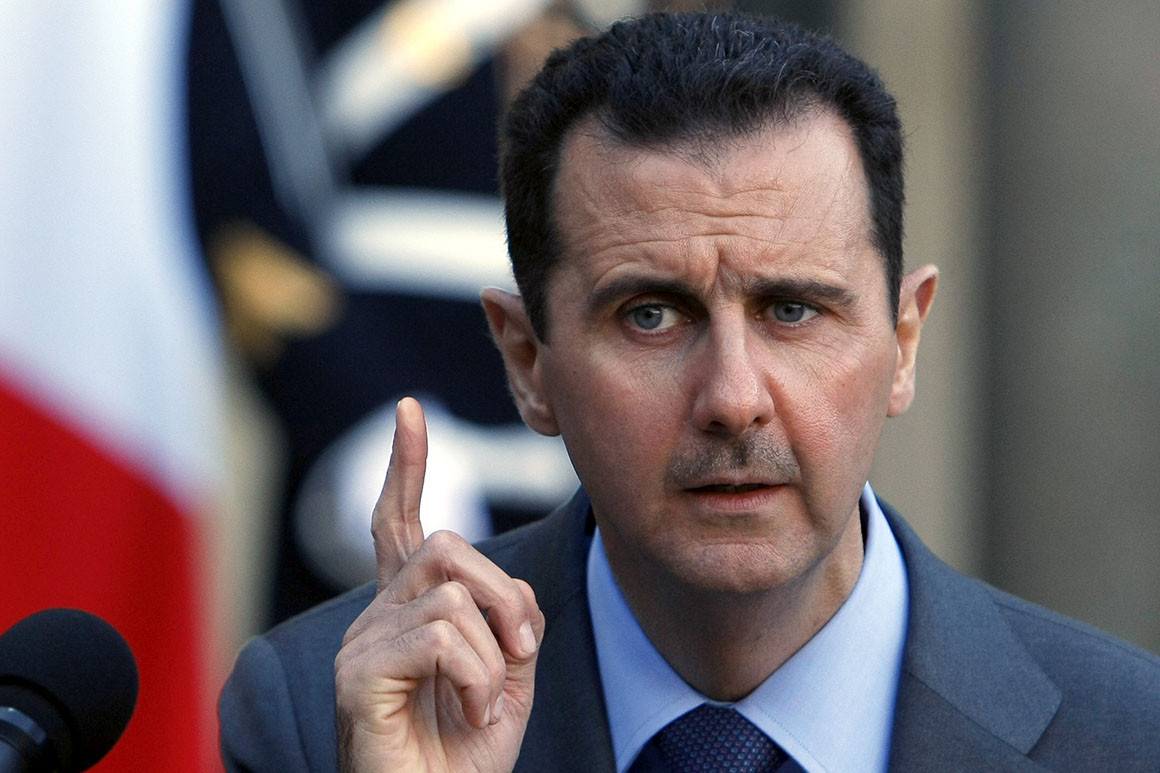French judicial authorities on Wednesday issued international arrest warrants for Syrian President Bashar Assad, his brother and two army generals for their alleged involvement in war crimes and crimes against humanity, including a 2013 chemical attack on rebel-held Damascus suburbs, lawyers for Syrian victims said, according to AP News.
In addition to President Assad, the arrest warrants were issued for his brother, Maher Assad, the commander of the 4th Armored Division, and two Syrian army generals, Ghassan Abbas and Bassam al-Hassan.
Jeanne Sulzer and Clemence Witt, lawyers at the Paris Bar who represent the plaintiffs, and NGOs behind the complaint, hailed the decision.
“It marks a crucial milestone in the battle against impunity,” Sulzer told The Associated Press on the phone. “It signifies a positive evolution in case law recognizing the grave nature of the crimes committed.”
The Paris prosecutor’s office has not publicly commented on the arrest warrants that remain secret under French law while an investigation is ongoing.
“Legally speaking, this is a procedural act as the investigation into the 2013 attacks in Eastern Ghouta and Douma continues,” Sulzer said. The four individuals named in the arrest warrants “can be arrested and brought to France for questioning by the investigative judges,” she said.
More than 1,000 people were killed and thousands were injured in the August 2013 attacks on Douma and Eastern Ghouta.
The investigation into the two chemical weapons attacks has been conducted under universal jurisdiction in France by investigative judges of the Specialized Unit for Crimes against Humanity and War Crimes of the Paris Judicial Court.
The investigation was opened in March 2021 in response to a criminal complaint by the survivors. It was filed by the Syrian Center for Media and Freedom of Expression.
Mazen Darwish, the director of the center, said the issuing of arrest warrants is “a new victory for the victims, their families and survivors” of the 2013 attacks.
Assad’s government was widely deemed by the international community to be responsible for the Aug. 21, 2013, sarin gas attack in the then-opposition-held Damascus suburb of eastern Ghouta. The Syrian government and its allies have denied their responsibility and claimed the Ghouta attack was carried out by opposition forces trying to push for foreign military intervention.
The United States threatened military retaliation in the aftermath of the attack, with then-President Barack Obama saying Assad’s use of chemical weapons would be Washington’s “red line.” However, the U.S. public and Congress were wary of a new war, as invasions in Afghanistan and Iraq had turned into quagmires.
In the end, Washington settled for a deal with Moscow for Syria to give up its chemical weapons stockpile.
Syria says it eliminated its chemical arsenal under the 2013 agreement. However, watchdog groups have continued to allege chemical attacks by Syrian government forces since then.
In addition to France, complaints relating to the chemical attacks in Eastern Ghouta in 2013 and Khan Shaykhun in 2017 were submitted to the authorities in Germany in October 2022, and in Sweeden on April 2021, based on witness testimonies, visual evidence and information about the chain of command of the entities suspected of carrying out the attacks.
Syria is not a member of the International Criminal Court, meaning it does not have jurisdiction there. However, human rights lawyers in the past have urged prosecutors to open an investigation into crimes during the country’s civil war, arguing that the court could exercise jurisdiction over Syrian civilians forced into Jordan, which is a member of the court.
So far, the court has not opened an investigation.
An investigative team at the Organization for the Prohibition of Chemical Weapons has repeatedly found that Syrian forces used chemical weapons, including in the April 2018 attack on Douma. However, the OPCW does not have any means of prosecuting perpetrators.










Trackbacks and Pingbacks